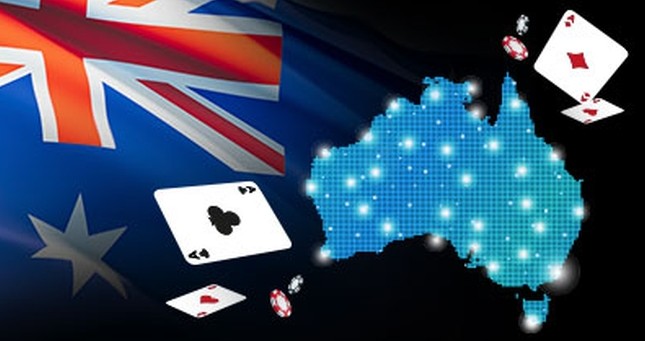Poker in Australia – News, Rooms & Live Tournaments
Poker stands out as one of the most intellectually challenging and globally adored card games. Blending elements of probability, psychology, and sharp decision-making, it has evolved from humble roots into a modern-day cultural and competitive phenomenon.
What began as a casual game among soldiers and travelers has transformed into a professional sport, streamed online and played in high-stakes tournaments by millions around the world.

Tracing Poker’s Origins
Though its exact beginnings remain debated, poker’s ancestry stretches back centuries. Early influences include French game poque, German pochen, and Persian as nas. Over time, these various styles merged and morphed into the poker we know today.
By the 19th century, poker was taking hold in the United States, particularly along the Mississippi River, where riverboat gamblers developed early versions of draw and stud poker. As railroads expanded west, so did the game—into bars, army camps, and eventually into organized casinos.
Texas Hold’em: The Modern Icon
Among all poker formats, Texas Hold’em has emerged as the most widely recognized and played. Its simple structure — two hole cards, five community cards, and strategic betting rounds — makes it accessible for beginners yet endlessly deep for veterans.
The rise of Hold’em is largely credited to the World Series of Poker (WSOP), which adopted the no-limit version of the game for its main event in the early 1970s. Since then, it’s become the face of modern poker.

Poker Tournaments and the World Series of Poker
The WSOP, hosted annually in Las Vegas, is poker’s most prestigious competition. Players from every corner of the globe compete for bracelets, titles, and life-changing prize pools.
While the WSOP is the most recognized, many other elite tournaments shape the competitive calendar, including:
- World Poker Tour (WPT)
- European Poker Tour (EPT)
- Asian Poker Tour (APT)
- Triton High Roller Series
These events not only attract professionals but also wealthy amateurs and passionate fans who chase the dream of poker glory.
Online Poker and the Internet Revolution
The digital era brought poker to a massive new audience. Online platforms like PokerStars, partypoker, and GGPoker opened the virtual doors to players of all levels. Tournaments, sit-n-gos, and cash games became available 24/7, often with low buy-ins and massive prize pools.
A landmark moment came in 2003, when Chris Moneymaker, an unknown accountant, won the WSOP Main Event after qualifying online. His underdog story triggered the “poker boom,” bringing waves of new players into the game.

Popular Poker Variants
While Texas Hold’em remains king, poker includes a rich variety of formats, each offering a distinct flavor:
- Omaha: Played with four hole cards and known for action-heavy pots.
- Seven Card Stud: Once the most popular variant before Hold’em took over.
- Razz: A unique lowball game where the worst hand wins.
- 2-7 Triple Draw: A draw poker variant emphasizing low hands.
- Mixed Games: Formats like H.O.R.S.E. or 8-Game challenge a player’s all-around skill.
Understanding multiple variants can elevate a player’s strategic depth and keep the game exciting over the long term.
Strategy and Skill in Poker
At its core, poker is a game of decision-making under pressure. Success relies not just on cards, but on reading opponents, calculating odds, managing risk, and staying disciplined.
Essential components of good poker strategy include:
- Positional Awareness: Acting later in the hand offers more information.
- Range Estimation: Thinking in terms of possible hands your opponent could hold.
- Pot Control: Controlling the size of the pot based on hand strength and risk.
- Bluffing and Deception: Knowing when to mislead and when to play straightforwardly.
- Mental Stamina: Staying focused for hours without tilting.
Modern players use hand-tracking software, solvers, training videos, and simulations to study and improve.
The Mental Game of Poker
Winning at poker requires more than math — it demands mental strength. Downswings, bad beats, and long grinding sessions can test even the most seasoned professionals.
To succeed, players develop emotional discipline, patience, and routines that support focus. Many top players adopt physical training, meditation, and performance coaching to maintain their edge.
Burnout is a real risk, especially for online grinders who play dozens of tables. Managing stress, building healthy habits, and taking breaks are crucial for longevity in the game.
Poker Laws and Global Regulation
Poker’s legal status differs by region. In some countries, poker is treated as a game of skill and widely regulated; in others, it’s grouped with gambling and heavily restricted.
- USA: Legal online poker exists in several states like Nevada and New Jersey.
- UK: Fully licensed and regulated under the UK Gambling Commission.
- Australia: Live poker is popular, but online play has faced restrictions.
- Europe: Many countries have legal online poker with local licensing.
- Asia: Emerging markets, especially in South Korea, India, and the Philippines.
Before playing online, it’s essential for players to understand the legal landscape in their region.

Poker Stars and Cultural Icons
Poker has a colorful cast of personalities — legends who dominate tables and draw huge audiences. Some names that stand out include:
- Phil Ivey – Feared for his quiet intensity and versatility.
- Daniel Negreanu – Known for his table talk and deep reads.
- Vanessa Selbst – One of the most successful female players in history.
- Fedor Holz – A young prodigy who conquered high-stakes tournaments.
- Doug Polk – Respected for his analytical mind and YouTube presence.
These players and others have helped turn poker into an entertainment spectacle as much as a competitive game.
The Future of Poker
Poker continues to evolve. New platforms, formats, and technologies are shaping its future:
- Short Deck Poker (6+): A variant with fewer cards and faster action.
- VR Poker: Virtual reality experiences are creating immersive environments.
- Mobile Poker: Smartphones and tablets make playing on the go easier than ever.
- Blockchain and Crypto Poker: Decentralized platforms using digital currencies.
Tournaments are getting bigger, live streams are bringing games to global audiences, and poker content is booming on Twitch, YouTube, and social media.
What remains unchanged is the thrill of the bluff, the grind of decision-making, and the endless layers of strategy that make poker one of the most compelling games on Earth.